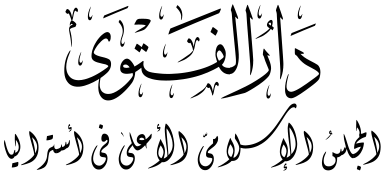The integrals of fasting are two:
1- To make the intention each night to fast the following day of Ramadan.
Making the intention at night to fast the following day of Ramadan means to have the intention in one's heart to fast during the night preceding the fasting day, i.e., after the sunset and before the dawn of the following day. Sometime during that time, the person must make the intention to fast the following day. This must be done each night for the following day of fasting. As related by at- Tirmidhiyy, an-Nasa'iyy, and others, the Prophet said:
لا صيام لمن لم يبيت النية
which means: << fasting would be invalid if one does not establish the intention at night>>
The intention is in the heart, and does not have to be uttered with the tongue.
If the menses or the postpartum bleeding of a woman stops at night, then she must intend to fast the following day. The purificatory bath (ghusl) is not required for her to start fasting, but rather to start praying. The intention for fasting a day of Ramadan must take place during the night preceding that day. However, the intention for fasting an optional fasting is extended until Dhuhr time.
2. To abstain, during the time from the dawn until sunset, from inserting any substance into the head or the body cavity through an open inlet, excluding one's pure, tahir saliva while still inside the mouth and to abstain from sexual intercourse, inducing vomit, and apostasy.
The fasting person must abstain from taking into his body cavity any substance from an open inlet, whether this substance is food, drink, or otherwise. A person's fast is invalidated if he intentionally inserts such a substance during the fasting day, while remembering he is fasting and knowing that it is unlawful to do so. The open inlets of the body are the mouth, nose, anus, vagina, and the like. Any substance that is absorbed by the pores of the skin does not invalidate the fast, because the pores of the skin are not considered to be an open inlet to the body cavity.
Swallowing one's own pure saliva, while still inside the mouth, does not invalidate the fast. However, the fast would be invalidated if some saliva dangled outside the mouth, and separated from the tongue, even to the lips, then was taken back in and swallowed. In addition, if the saliva in the mouth is mixed with something else, whether pure or not, then swallowed, this invalidates the fast. One's fast is not invalidated by what is too hard to protect oneself from swallowing. This includes the dust of the street, the dust of the flour, and the like. Although smoking a cigarette breaks the fast of the smoker himself, it does not break the fast of the person next to him who breathes in some of that smoke. One’s fast would not be invalidated if one breathes in the odor of incense or other fragrances.
Finally, the Muslim must abstain at all times from committing apostasy, i.e., committing any type of blasphemy which takes him out of Islam. Apostasy invalidates Fasting, even if one returns to Islam immediately afterwards. After returning to Islam, One must abstain from eating and other invalidators of Fasting during the whole day. Moreover, one must make up the invalidated day of Fasting after Ramadan.






